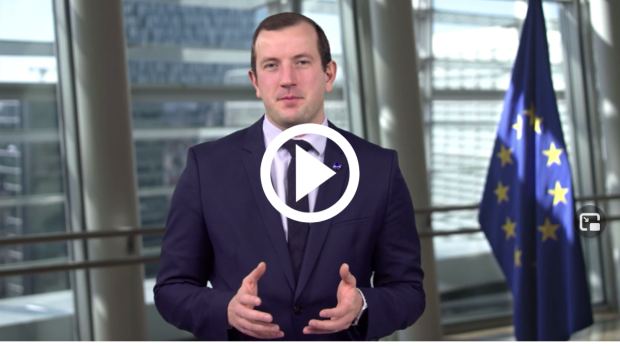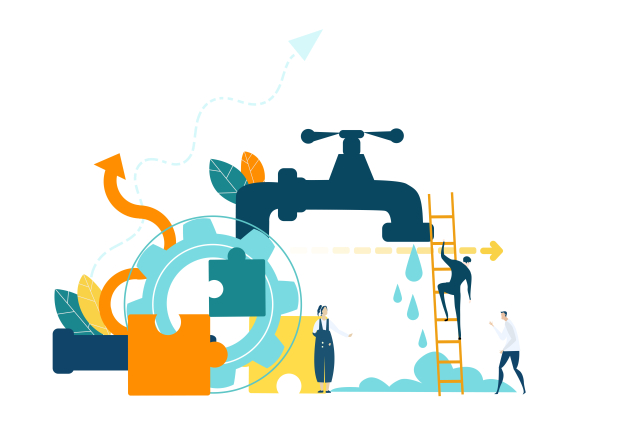
Launch of the Global Alliance on Circular Economy and Resource Efficiency (GACERE)

Circular economy and resource efficiency are vital for restoring human and planetary health and developing a sustainable economy that will increase prosperity. On Monday, 22 February, the European Commission, the UN Environment Programme (UNEP), and the UN Industrial Development Organization launched the Global Alliance on Circular Economy and Resource Efficiency (GACERE) within the wider context of the UN Environment Assembly. The event was hosted by Mr Virginijus Sinkevičius, EU Commissioner for Environment, Oceans and Fisheries, Ms Inger Andersen, United Nations Under-Secretary-General and UNEP's Executive Director, and Mr LI Yong, Director-General of the United Nations Industrial Development Organisation.
The Global Alliance aims to support the transition to a global circular economy for more efficient and equitable use of resources so as to achieve sustainable consumption and production and inclusive and sustainable industrialization. It builds on existing initiatives and cooperates with regional alliances, such as the African Circular Economy Alliance and the Latin America and the Caribbean Circular Economy Coalition. Through GACERE countries will work together and advocate at the political level and in multilateral fora. Besides the EU, GACERE’s growing list of member states includes Canada, Chile, Colombia, Japan, Kenya, New Zealand, Nigeria, Norway, Peru, Rwanda and South Africa.
The event began with a welcome from Florika Fink-Hooijer, Director-General, Directorate-General for Environment, European Commission. ‘We think an approach to consumption and production based on circularity, designing out waste, and keeping products and materials in the economy for as long as possible makes sense. Not only for Europe, but for every country,’ she said. Next, UNEP Executive Director Inger Andersen stressed that ‘circularity and sustainable consumption and production (SCP) are essential to deliver on every multilateral agreement, from the Sustainable Development Goals, to the Paris Agreement to the post-2020 global biodiversity framework. They are essential to a sustainable recovery from the pandemic.’ Rounding out the opening remarks with a focus on innovation, labour and industry, UNIDO Director-General LI Yong noted that ‘we will have a promising solution in our hands to safeguard and protect the natural wealth of our planet from climate, biodiversity, ocean and land degradation catastrophes and address the ambition of developing countries for inclusive and sustainable industrialization, if we choose a path to a circular economy and make this transition just. This will also enable economic prosperity, business opportunities, innovations and green jobs.’
The first session looked at ‘The circular economy contribution in achieving climate neutrality’. Its panel was composed of Mr Carlos Eduardo Correa Escaf, Minister of Environment and Sustainable Development, Colombia, Mr Shinjiro Koizumi, Minister of Environment, Japan, Mr Gabriel Quijandría Acosta, Minister of Environment, Peru, Ms Patricia Fuller, Ambassador for Climate Change, Canada, and Ms Teresa Oberhauser, Focal Point and Global Coordinator, UN Environment Programme Major Group for Children and Youth.
The second session focused on ‘Achieving sustainable consumption and production and inclusive and sustainable industrialisation through circular approaches’. Speakers included Mr Sveinung Rotevatn, Minister of Environment and Climate Change, Norway, Mr Javier Naranjo, acting Minister of Environment, Chile, Ms Jeanne d’Arc Mujawamariya, Minister of Environment, Rwanda, Mr Nathan Glassey, Head of Delegation to UNEA-5, New Zealand, and Mr Joss Blériot, Executive Lead, International Institutions & Governments, Ellen MacArthur Foundation.
Following this session, the members endorsed GACERE’s concept note.

To conclude the event, Mr Virginijus Sinkevičius, EU Commissioner for Environment, Oceans and Fisheries, spoke to ‘the role of GACERE in supporting a global just transition to circular and resource efficient economies’. He said, ‘All around the world, the governments are keen to build back better. And citizens expect change. This is the best moment to change direction and embark on a path to a sustainable, climate neutral and resource efficient model to address the urgent challenges posed by biodiversity loss, climate change, and pollution. The circular economy will take us a long way on the path to sustainability. It’s a positive agenda, full of benefits for the economy and the environment and for our citizens.’

More stakeholder meetings will be held in the coming year. GACERE is an expanding network of governments and other organisations and will work towards a sustainable future for the planet.
Recording of the event:
https://www.youtube.com/watch?v=OYgasG8UWWo
Remarks from UNEP Executive Director Inger Andersen:
https://www.unep.org/news-and-stories/speech/circularity-advance-sustainable-development
EU Commission news story:
https://www.unep.org/news-and-stories/speech/circularity-advance-sustainable-development
EU Commission GACERE web page:
https://ec.europa.eu/environment/international_issues/gacere.html



